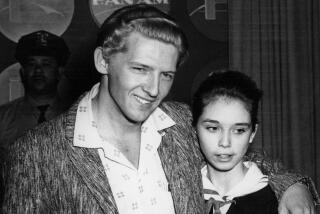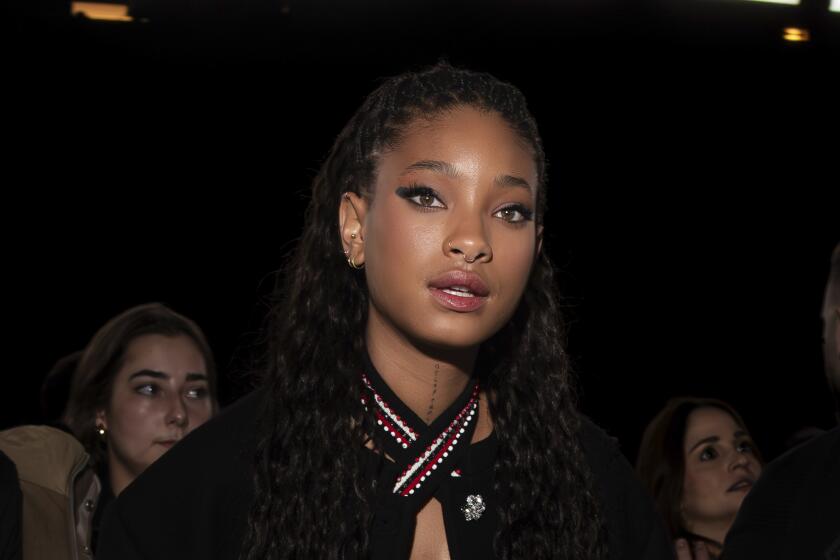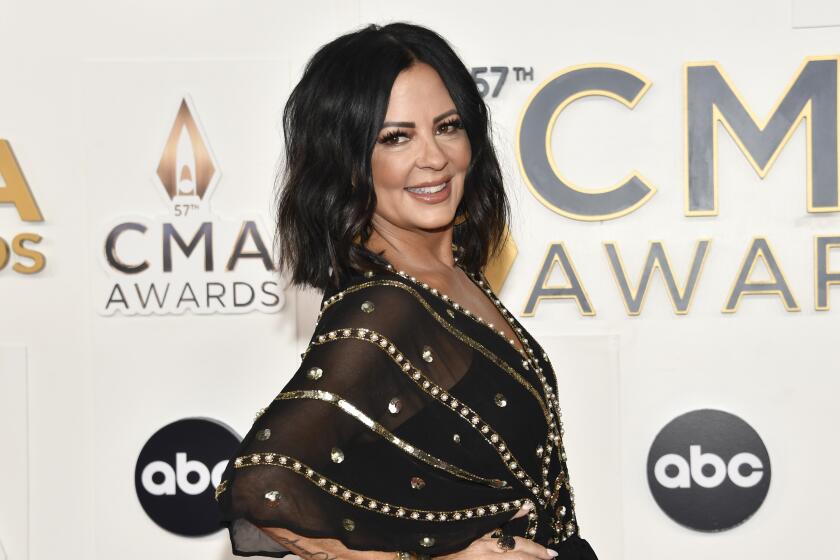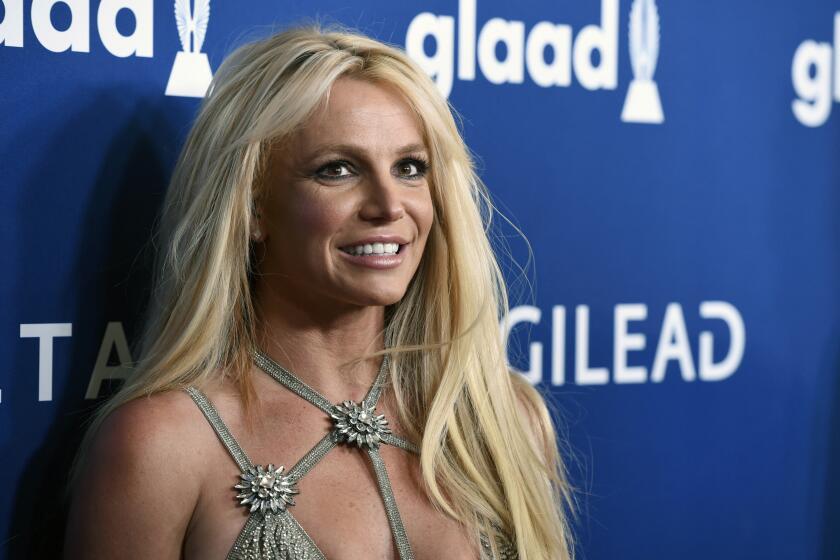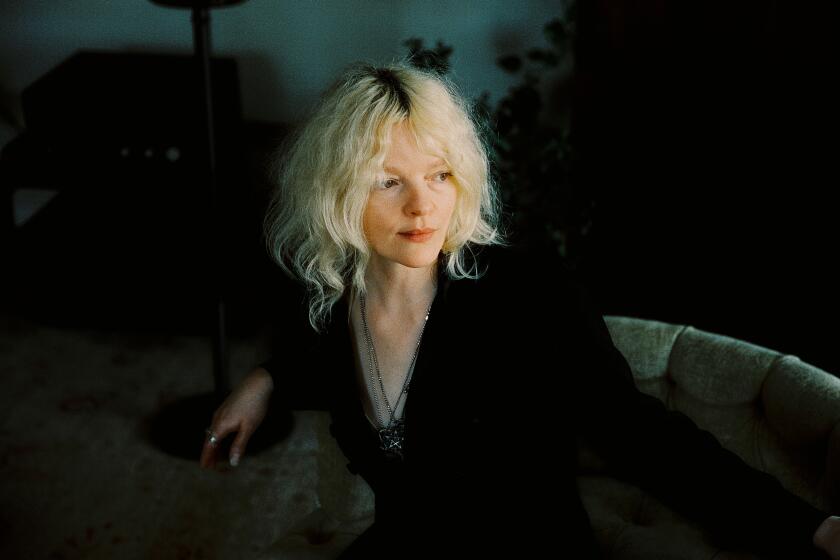Making the ‘American Idol’ top 10 is no guarantee of stardom
More than 100,000 people audition for “American Idol” every year, holding on to the wide-eyed fantasy that making the top 10 — with its promise of weekly exposure to millions of TV viewers and a national summer tour — will drop them squarely on the road to fame. But after the season ends (as it does this year on May 26), many of those sent home find that “Idol” doesn’t come with guarantees.
In fact, now in its ninth season, the Fox series has churned out more than 80 would-be stars, creating a bizarre glut of talent, with few seeing quantifiable success. Perhaps Jamie Foxx said it best when he posed a question to this year’s top four, Crystal Bowersox, Lee DeWyze, Michael Lynche and Casey James: “Are you still a contestant or an artist? America wants to see the artist … whose record we’re going to buy.”
But unless you’re Jennifer Hudson (famously eliminated after reaching seventh place in 2004 only to win an Oscar three years later), the odds of hitting it big aren’t that far off those of winning the show itself.
Just ask Anoop Desai, a sixth-place finalist last year. “After ‘Idol,’ it was a struggle to get people to call me back,” says Desai of his efforts to release his music. “You’d think someone who had just been in front of 30 million people for 10 or 15 weeks in a row has an automatic fan base and all this going for them, but for whatever reason, most of us [from Season 8] came up empty.” Desai opted to self-release his debut album, “All Is Fair,” on May 4, and is setting his sights on India and the international market.
In fact, the overwhelming majority of nonwinners will never see a real recording deal. “One of the interesting things about ‘American Idol’ is that it really serves as a fantastic farm club for talent,” says Jeff Rabhan, chairman of NYU’s Clive Davis Department of Recorded Music and a longtime manager who’s worked with former Idols Kelly Clarkson, Clay Aiken and Elliott Yamin. “But the game doesn’t stop when the curtain drops or even when you’re holding the trophy. That’s when it starts.”
You don’t have to be a math whiz to understand the numbers: Each season, the winner and two finalists are practically assured a major label deal (which can net as much as $300,000 for the runner-up, $200,000 for third) — though whether it’s extended is far from a sure thing. Sometimes, the runner-up will outsell the winner (2009 champion Kris Allen’s 296,000 trails second-place Adam Lambert’s 615,000-plus). As for the other eight finalists, they’re left to fend for themselves.
“It’s just a fact that only so many Idols can release music each year on a major label,” says 2008’s fourth-place finisher, Jason Castro, whose self-titled debut came out April 13 and has sold a modest 30,000 copies. “On the business end, there aren’t the resources for every top 10 person to do it.”
So how much is an “Idol” finalist’s career really worth? Except for a select few like Lambert and runners-up David Archuleta and Aiken, who went platinum and double platinum, respectively, or Season 5’s Chris Daughtry, who’s sold more than 5 million albums, think small.
“The 15 minutes are up about 12 to 18 months in,” says one manager who’s worked with “Idol” winners and runners-up. The manager did not want to be identified because he is not authorized to disclose contract details. “In the first year, you can become a local superstar — you’re at the state fair, the state Assembly meeting, singing ‘God Bless America’ at the baseball game.”
Is it enough to make a living? “You can squeak by,” adds the insider. “There are opportunities to make appearances, speaking engagements, private gigs, openings of envelopes....” Fees range from $2,500 for a signing to $15,000 to $20,000 for performances at private corporate events. This is on top of the hefty sum (an estimated $300,000) that most of the Top 10 will pocket from the “Idol” summer tour, which grossed $30 million last year.
Beyond the money lies the larger question of how to build a solid career once the snarky Simon Cowell judgments fade out. This is one reason so many alums end up in theater: It provides a regular paycheck. Aiken, Fantasia Barrino, Diana DeGarmo, Ace Young and Constantine Maroulis have all starred on Broadway in recent years. Maroulis’ turn in the ‘80s-inspired “ Rock of Ages” even earned him a Tony nomination.
Still, Maroulis’ “Idol” affiliation was initially viewed as a liability. “He had a really intense stigma,” says the show’s executive producer, Janet Billig. “He didn’t have credibility. But when Constantine came in to audition, he blew us away, and we saw a lot of Idols.”
Maroulis himself had a couple of false starts after his sixth-place finish in 2005, among them a poorly received album and a stalled TV development deal with Kelsey Grammer’s production company. But eventually he landed the role of a wannabe rocker in the Broadway smash, which is headed to the Pantages Theater next year.
If life as a recording or stage star doesn’t work out, some alums can always turn back to “Idol,” providing media commentary about the show itself. Season 2’s Kimberly Caldwell starting co-hosting the TV Guide Network’s “Idol Wrap” show in 2004 and continued for five years. “I probably should have been waiting tables,” she says. “It was the best day job you could ever get in L.A.” Caldwell kept “doing music on the side,” and it was only in 2009 that she landed a deal with Vanguard Records, which releases her debut album, “Without Regret,” in June — eight years after Caldwell graced the “Idol” stage.
Castro also took his time, signing a 360 deal with Atlantic Records a year ago, in which the record company shares revenue from merchandising, touring, sponsorships and licensing. His slow and steady approach involved an EP release, which went Top 5 on iTunes, followed by an opening slot on labelmate Matt Hires’ national tour and now his own tour.
Still, there are those who contend that Castro and Caldwell may have waited too long to launch music careers. Says Rabhan: “What the American public wants — and the psyche demands — is that you release product as soon as humanly possible. Time is not your friend after ‘Idol.’ ”
In the case of Danny Gokey, last year’s third-place contestant, the timing couldn’t have been better. Not only did he have a finished album out within a year of his elimination, but he scored a much-coveted booking on “Idol” the day after it was released as well as the opening slot of the Sugarland tour. His Sony Nashville debut, “My Best Days,” charted at No. 3 upon its release in early March and has sold nearly 150,000 copies.
“Idol” may foster the fantasy of instant superstardom, but the canniest competitors understand that paying dues is still in order. “ ‘American Idol’ was a great launching pad,” says Gokey, “and it did a lot of [the legwork], but now it’s really time to add to that. As artists, we can’t think everything just comes for free.”
Almost four years out from the end of his “Idol” road, Season 5’s Yamin sees his place in the post-show pecking order simply: “Any kind of impression you can make, whether it’s on TV, the radio or shaking hands after a show, is positive exposure.” Although his self-titled first album sold 525,000 copies, his 2009 follow-up moved only a 10th that amount. And when he tried to tour this past winter with top billing, he was met with weak ticket sales and canceled shows.
“Yeah, I might have a problem getting people to my show, and obviously the further you’re removed from ‘Idol,’ the harder it gets, but the bottom line is: People still know who I am,” Yamin insists. “Whether they recognize my face or my name, that goes a long way. The rest is up to me.”
Clicking on Green Links will take you to a third-party e-commerce site. These sites are not operated by the Los Angeles Times. The Times Editorial staff is not involved in any way with Green Links or with these third-party sites.
More to Read
The biggest entertainment stories
Get our big stories about Hollywood, film, television, music, arts, culture and more right in your inbox as soon as they publish.
You may occasionally receive promotional content from the Los Angeles Times.

